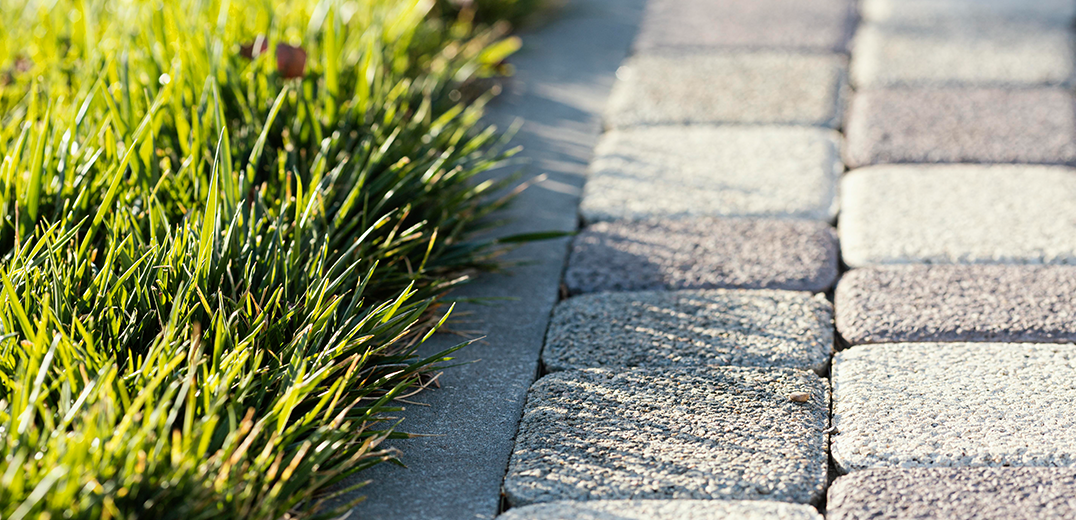Block Paving Driveway Maintenance Tips for Longevity
Introduction
A block paving driveway is a fantastic investment, offering a stylish, durable, and low-maintenance solution for your property. However, to maintain its pristine look and structural integrity over the years, regular upkeep and proper maintenance are essential.
Without care, block paving can suffer from issues such as weed growth, moss build-up, stains, and sinking blocks – problems that can significantly reduce both the appearance and longevity of your driveway.
In this comprehensive guide, we will explore everything you need to know about block paving driveway maintenance – from routine cleaning and sealing to repairing loose or sunken blocks.
Whether you’ve recently had a driveway installed or are looking to restore an older surface, these maintenance tips will help protect your investment for years to come.
1. Routine Cleaning and Upkeep
Why Regular Cleaning is Essential
Keeping your block paving clean not only enhances its aesthetic appeal but also prevents dirt, grime, and organic matter from settling between the blocks.
Regular cleaning:
- Stops weeds from taking root.
- Prevents moss, algae, and lichen build-up.
- Reduces staining from oil, grease, and tyre marks.
- Helps maintain the vibrant colour of the paving blocks.
How to Properly Clean Your Driveway
- Sweeping – Use a stiff-bristled brush to sweep away dirt, leaves, and debris at least once a week.
- Washing – Use warm water and a mild detergent to remove surface grime. Avoid harsh chemicals that may damage the blocks.
- Spot Cleaning – For tougher stains, apply a specialist block paving cleaner and allow it to sit for a few minutes before scrubbing and rinsing.
2. Preventing and Controlling Weed Growth
Why Weeds Grow Between Paving Blocks
Block paving driveways are highly durable and aesthetically pleasing, but one common issue that many homeowners face is weed growth between the paving blocks.
Unlike solid concrete or tarmac surfaces, block paving has sand-filled joints that create small gaps between each block. These spaces allow water to drain effectively, preventing surface pooling. However, they also provide the perfect environment for weeds to take root.
Weed seeds can be carried by wind, rain, or animals, settling into the sand between the blocks. Over time, if left untreated, these weeds can spread and weaken the structure of your driveway by pushing apart the blocks, leading to uneven paving and potential movement. The more moisture and organic debris that collects in the gaps, the more fertile the ground becomes for weeds, moss, and algae to grow.
How to Prevent Weeds from Growing in Block Paving
To prevent weeds from taking over your block paving driveway, regular maintenance and preventive measures are essential. Here are the most effective ways to control and prevent weed growth:
1. Regular Sweeping and Cleaning
Why It Helps:
- Regularly sweeping your driveway removes loose dirt, dust, fallen leaves, and organic debris, reducing the materials that weeds need to germinate.
- Keeping the surface clean prevents moss and algae build-up, which can retain moisture and create the perfect environment for weeds.
How to Do It:
- Use a stiff-bristled brush to sweep your driveway at least once a week.
- If debris accumulates in the joints, consider using a power brush or pressure washer to clear the gaps effectively.
2. Applying a Weed Killer or Herbicide
Why It Helps:
- A residual herbicide will kill existing weeds and create a protective barrier to prevent new ones from growing.
- Some weed killers penetrate deep into the sand joints, stopping weed seeds from sprouting in the future.
How to Do It:
- Choose a high-quality weed killer specifically designed for use on block paving.
- Apply on a dry day when there’s no rain forecast for at least 24 hours.
- Spray or pour the weed killer directly into the joints between the blocks, ensuring even coverage.
- Repeat the treatment every 6-8 weeks during peak growing seasons (spring and summer).
💡 Pro Tip: Avoid using homemade vinegar-based solutions, as these can damage the paving over time.
3. Reapplying Jointing Sand to Fill the Gaps
Why It Helps:
- Re-sanding strengthens the block paving structure, reducing movement and gaps where weeds can grow.
- Dry jointing sand makes it harder for seeds to settle and germinate.
How to Do It:
- After sweeping or pressure washing your driveway, ensure the area is completely dry.
- Use kiln-dried sand (a fine, dry sand specifically designed for block paving).
- Spread the sand evenly over the driveway and brush it into the joints using a stiff brush.
- Compact the sand by walking over the driveway or using a vibrating plate compactor for the best results.
- Reapply sand every 6-12 months, especially after heavy rainfall or cleaning.
4. Sealing Your Block Paving to Create a Weed-Resistant Barrier
Why It Helps:
- A paving sealant binds the jointing sand together, making it difficult for weeds to push through.
- It also helps to protect against moisture absorption, which prevents moss and algae growth.
- Sealing enhances the overall durability of your block paving and extends its lifespan.
How to Do It:
- Choose a solvent-based or acrylic paving sealer designed for block paving.
- Apply the sealer with a roller or sprayer after re-sanding the joints.
- Allow the sealer to dry completely before walking or driving on the surface.
- Reapply every 2-3 years to maintain the protective layer.
💡 Pro Tip: Sealing your driveway not only prevents weed growth but also helps repel oil stains, dirt, and water damage.
5. Installing a Weed Membrane Underneath the Block Paving
Why It Helps:
- If you are installing a new block paving driveway, adding a weed control membrane beneath the sub-base can prevent weeds from growing up through the paving.
- This is a long-term solution that significantly reduces weed problems.
How to Do It:
- Before laying the blocks, install a high-quality geotextile weed membrane over the compacted sub-base.
- Ensure the membrane is secure and covers the entire area to prevent weeds from penetrating through.
3. Dealing with Moss, Algae, and Lichen Build-up
Moss and algae thrive in damp conditions, especially in shaded areas of the driveway. This can make the surface slippery and hazardous.
How to Remove Moss and Algae
- Scrape off moss using a stiff brush or wire brush.
- Apply a moss and algae remover – Use a fungicidal wash or diluted bleach solution to kill spores and prevent regrowth.
- Ensure proper drainage – Water should not pool on your driveway, as standing moisture encourages moss and algae growth.
4. Pressure Washing: Do’s and Don’ts
Pressure washing is an effective way to restore your block paving, but it must be done correctly to avoid damage.
✅ The Right Way to Pressure Wash
✔ Use a pressure washer on a low to medium setting.
✔ Hold the nozzle at a slight angle to avoid removing jointing sand.
✔ Work in small sections to ensure even cleaning.
❌ Common Mistakes to Avoid
❌ Using high-pressure settings, which can dislodge the sand and weaken the structure.
❌ Holding the nozzle too close to the surface, which may erode the paving.
❌ Neglecting to re-sand the joints after washing (covered in the next section).
5. Re-Sanding Block Paving Joints
Why Re-Sanding is Important
The kiln-dried sand between your paving blocks provides structural stability and prevents movement. Over time, natural erosion, heavy rainfall, and pressure washing can wash away this sand, leading to:
- Loose or wobbly blocks.
- Increased weed growth.
- Reduced driveway lifespan.
How to Reapply Sand
- Wait until the paving is completely dry after cleaning.
- Pour kiln-dried sand over the surface and use a broom to sweep it into the joints.
- Compact the sand by gently using a vibrating plate compactor or by repeating the process over a few days.
6. Sealing Your Block Paving for Long-Term Protection
Applying a sealant enhances durability, prevents stains, and helps maintain the original colour of your paving.
Benefits of Sealing
✔ Creates a protective barrier against oil, grease, and stains.
✔ Reduces weed and moss growth.
✔ Improves water resistance, preventing moisture damage.
How to Apply a Sealant
- Clean and dry the driveway completely.
- Apply a high-quality block paving sealer using a roller or sprayer.
- Allow it to dry for at least 24 hours before using the driveway.
7. Preventing and Repairing Stains
Oil spills, tyre marks, and rust stains can make your driveway look unkempt.
How to Remove Stains
- Oil stains: Use an oil remover or dish soap with warm water.
- Tyre marks: Scrub with a degreasing agent and rinse thoroughly.
- Rust stains: Apply a specialist rust remover designed for paving.
Long-Term Stain Prevention
- Place drip trays under vehicles with leaks.
- Apply a sealant to reduce stain absorption.
8. Addressing Loose or Sunken Blocks
If you notice uneven paving, it’s essential to fix it before it worsens.
What Causes Blocks to Move?
- Erosion of jointing sand.
- Poor installation.
- Water pooling beneath the blocks.
How to Fix Loose or Sunken Blocks
- Lift the affected blocks using a screwdriver or block remover.
- Add fresh sand or sub-base material underneath.
- Reposition the blocks and reapply jointing sand.
9. Protecting Your Driveway from Harsh Weather Conditions
Winter Protection Tips
✔ Use a salt-free de-icer to prevent damage to the pavers.
✔ Remove snow and ice promptly to reduce moisture penetration.
Summer Protection Tips
✔ Seal the driveway to protect against UV fading.
✔ Hose down the surface on hot days to prevent overheating.
10. When to Call a Professional for Driveway Maintenance
While DIY maintenance can keep your driveway in great condition, some issues require professional intervention.
Signs You Need Expert Help
- Deep cracks or shifting blocks.
- Severe weed or moss infestation.
- Major drainage problems.
At All Custom Paving, we offer professional block paving cleaning, repairs, and sealing services to ensure your driveway remains in top condition.
Conclusion
Maintaining your block paving driveway is essential to preserve its appearance, durability, and functionality.
By following these block paving driveway maintenance tips, you can:
✔ Keep your driveway clean and free from weeds.
✔ Prevent moss and algae growth.
✔ Protect against harsh weather conditions.
✔ Ensure long-term stability with proper re-sanding and sealing.
At All Custom Paving, we provide expert block paving installation, maintenance, and repair services to keep your driveway in excellent shape. Whether you need a professional clean, re-sanding, or sealing, contact us today for expert advice and high-quality service.

